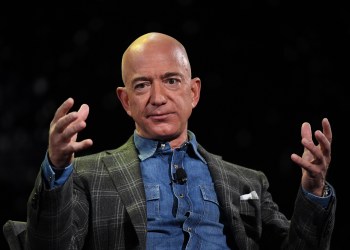Start with spending cuts
TEXT OF COMMENTARY
Kai Ryssdal: The non-partisan Tax Policy Center’s been doing its thing. It’s been digging into the tax promises John McCain and Barack Obama have been making.
Take health care out of the equation and it turns out both candidates would wind up costing the government money. For Obama: $2.7 trillion less in tax revenues over the next 10 years. For McCain: $3.7 trillion.
Big numbers, but commentator and economist Glenn Hubbard says it’s time to turn the debate from how much Washington’s bringing in to how it’s being spent.
Glenn Hubbard: It’s impossible to reduce spending in the near term, right?
Wrong. To balance the budget by the end of the next president’s term, non-defense spending growth needs to be restrained to inflation. Now, this will be tough. The federal government has been on a bipartisan spending binge for a decade. Compared to the 1997 level, adjusted for inflation and new homeland security spending, actual non-defense spending for the decade is $900 billion higher.
Now, we can fix this without raising tax rates, but conventional wisdom also says we can’t cut spending in the long term. That’s because spending on Social Security and Medicare is projected to rise in the coming decades, right?
Well again, no. Spending restraint is our only sensible choice. The Congressional Budget Office tells us Social Security and Medicare spending, left unchecked over the next generation, will rise by 10 percentage points of GDP. Ratifying this spending with higher taxes would require an across-the-board tax increase of 60 percent.
We can meet our spending challenges on defense and education and training, but we must do three things: Change entitlements to slow their cost growth by reducing assistance for the better off, eliminate the binge spending in the remainder of the budget and adopt policies that promote economic growth. The greater economic growth, the larger the economic pie to finance the entitlement obligations and other national priorities.
Memo to presidential candidates: If you propose to restrain federal spending, tell us how. And if you propose to raise taxes, talk to us about the lost opportunities in economic growth for the country’s priorities and dreams.
Ryssdal: Glenn Hubbard is the dean of the business school at Columbia University. He used to run the Council of Economic Advisers for President Bush.
There’s a lot happening in the world. Through it all, Marketplace is here for you.
You rely on Marketplace to break down the world’s events and tell you how it affects you in a fact-based, approachable way. We rely on your financial support to keep making that possible.
Your donation today powers the independent journalism that you rely on. For just $5/month, you can help sustain Marketplace so we can keep reporting on the things that matter to you.


















